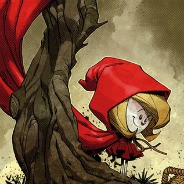ответить на вопросы по тексту
In some areas of England there are nursery schools for children under 5 years of age. Some children between two and five receive edu¬cation in nursery classes or in infants’ classes in primary schools. Many children attend informal play-groups organised by parents in private homes. Nursery schools are staffed with teachers and stu¬dents in training. There are all kinds of toys to keep the children busy from 9 o'clock in the morning till 4 o'clock in the afternoon while their parents are at work. Here the babies play, lunch and sleep. They can run about and play in safety with someone keeping an eye on them.
For day nurseries which remain open all the year round the parents pay according to their income. The local education authority's nurse¬ries are free. But only about three children in 100 can go to them: there aren't enough places, and the waiting lists are rather long.
Most children start school at 5 in a primary school. A primary school may be divided into two parts: infants and juniors. At infants school reading, writing and arithmetic are taught for about 20 minutes a day during the first year, gradually increasing to about 2 hours in their last year. There is usually no written timetable. Much time is spent in modelling from clay or drawing, reading or singing.
By the time children are ready for the junior school they will be able to read and write, do simple addition and subtraction of numbers.
At 7 children go on from the infants school to the junior school. This marks the transition from play to "real work". The children have set periods of arithmetic, reading and composition which are all Eleven Plus subjects. History, Geography, Nature Study, Art and Music, Physical Education, Swimming are also on the timetable.
Pupils were streamed according to their abilities to learn into A, B, С and D streams. The least gifted are in the D stream. Formally tо¬wards the end of their fourth year the pupils wrote their Eleven Plus Examination. The hated Eleven Plus Examination was a selective procedure on which not only the pupils' future schooling but their future careers depended. The abolition of selection at Eleven Plus Examination brought to life comprehensive schools where pupils can get secondary education.
1. Answer the following questions: 1) What can you say about pre-primary edu¬cation in England? 2) What can parents choose for their children? 3) Nursery schools are staffed with teachers and stu¬dents in training, aren’t they? 4) What can children do in nursery school? 5) When do most children start primary school? 6) How may a primary school be divided ? 7) When do children go on from the infants school to the junior school? 8) Is the Russian system of pre-primary education the same? Are there any changes in it? 9) Where can pupils get secondary education in England?
183
275
Ответы на вопрос:
1. is drinking, drinks 2. play, are playing 3. is doing 4. does 5. is speaking 6. speaks
Реши свою проблему, спроси otvet5GPT
-
Быстро
Мгновенный ответ на твой вопрос -
Точно
Бот обладает знаниями во всех сферах -
Бесплатно
Задай вопрос и получи ответ бесплатно

Популярно: Английский язык
-
D.T IT 115ten and check. 2 Read the texts again and complete the sentences...
 marshall22906.03.2022 18:07
marshall22906.03.2022 18:07 -
до 30 апреля 2020 года 15:10...
 Alihan197014.06.2020 19:58
Alihan197014.06.2020 19:58 -
Choose the modal verbs which express: 1obligation and necessity: can...
 MakkDuo13.12.2021 08:13
MakkDuo13.12.2021 08:13 -
Составить рассказ о себе 5-4 предложений в прошедшем времени. на . заранее...
 8989645268fortpoli22.03.2021 18:53
8989645268fortpoli22.03.2021 18:53 -
1) complete the sentences by putting the verb in brackets into the present...
 natka01218.03.2022 12:52
natka01218.03.2022 12:52 -
Исправить ошибки в предложениях. 1)those children has bad teeth. it s...
 aalbina70705.08.2021 13:11
aalbina70705.08.2021 13:11 -
Составить 3 предложения в past simple и present contininous...
 СвятаяИра29.06.2020 09:47
СвятаяИра29.06.2020 09:47 -
Как перевести текст по many english families live flast,but a lot of...
 toby00025.06.2021 11:48
toby00025.06.2021 11:48 -
Present simple + i carry a big bag - ? + - с этим же словом...
 Adonis1232102.10.2020 22:28
Adonis1232102.10.2020 22:28 -
Переведите на язык: внимание! самые очаровательные щенки ищут себе новый...
 katyu123424.02.2021 08:10
katyu123424.02.2021 08:10

Есть вопросы?
-
Как otvet5GPT работает?
otvet5GPT использует большую языковую модель вместе с базой данных GPT для обеспечения высококачественных образовательных результатов. otvet5GPT действует как доступный академический ресурс вне класса. -
Сколько это стоит?
Проект находиться на стадии тестирования и все услуги бесплатны. -
Могу ли я использовать otvet5GPT в школе?
Конечно! Нейросеть может помочь вам делать конспекты лекций, придумывать идеи в классе и многое другое! -
В чем отличия от ChatGPT?
otvet5GPT черпает академические источники из собственной базы данных и предназначен специально для студентов. otvet5GPT также адаптируется к вашему стилю письма, предоставляя ряд образовательных инструментов, предназначенных для улучшения обучения.
